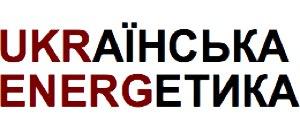Disclosure of resource extraction contracts is important for Ukraine’s compliance with international environmental conventions
On 21 October 2021, the Meeting of the Parties to the Convention on Access to Information, Public Participation in Decision-Making and Access to Justice in Environmental Matters (Aarhus Convention) adopted a decision in the case ACCC/C/2014/118 Ukraine, important from the viewpoint of advocating the disclosure of resource extraction contracts. It is worth stressing that this obligation also follows from requirements of the Extractive Industries Transparency Initiative (EITI) Standard, to which Ukraine is a party.
Firstly, the Meeting of the Parties has recognized the texts of production sharing agreements (PSAs) to be environmental information as defined by the Convention, which means that the state must guarantee (in particular, at legislative level) public access to this information.
At the same time, even though the Convention states that access to environmental information could be restricted for security reasons or to prevent disclosure of confidential commercial information, the said restrictions (in the case of confidential commercial information) do not apply to information about emissions.
In addition, Article 6 of the Convention states that each Party shall provide for early public participation, when all options concerning the proposed activity are open. Therefore, even at this stage of analyzing the decision VII/8r of the Meeting of the Parties, it would be fair to say that the environmental impact assessment procedure must be resumed for PSA projects, because it promotes dissemination, discussion and analysis of environmental information during the PSA negotiation process.
Secondly, the Meeting of the Parties has established that Ukraine failed to comply with the Aarhus Convention by:
- failing to provide public access to the full text of the production sharing agreements for the Yuzivska and Oleska oil fields containing prospective hydrocarbon deposits;
- failing to carry out a public participation procedure regarding the draft production sharing agreements;
- denying the public standing to challenge the legality of a production sharing agreement;
- establishing a legal framework in which environmental impact assessment will only be carried out once a production sharing agreement is already at the implementation stage;
- failing to ensure that the requested environmental information is disclosed within the timeframe required by the Convention.
Based on the Compliance Committee’s findings, the Meeting of the Parties recommended that Ukraine takes the necessary measures to ensure disclosure of PSAs, which are not only conformant with requirements of the EITI Standard but also envisage a much higher degree of transparency:
- the texts of production sharing agreements are to be provided in full to members of the public upon request;
- the public concerned should be enabled to participate in the discussion of draft PSAs and in the revision of existing PSAs;
- the public must receive effective instruments of legal remedy and cassation appeal, which are conformant with requirements of the Convention.
Ukraine has time until July 2022 to submit a plan of action, including a time schedule, and until October 2023 to provide a detailed progress report.
DiXi Group experts warned about these risks back in December 2019, when the so-called “Amber Law” abolished the procedure of agreeing draft PSAs with bodies of local self-government and the environmental impact assessment procedure for them. We also made an analysis of how resource extraction contracts are disclosed in other countries of the world, and of the PSA confidentiality aspect.
Today, the experience of Ukraine proves that an attempt to curb transparency entails a consequence in the form of obligation to disclose even more information. Thus, the failure to provide public access to the texts of PSAs entailed an inquiry with the Aarhus Convention Compliance Committee, which resulted in the aforementioned decision concerning Ukraine that envisages a number of complex (including legislative) changes.
Failure to comply with requirements of the EITI Standard produces similar consequences. Therefore, it is very important to expedite the passage of the draft law 3790, which envisages the complete disclosure of not only PSAs but also all resource extraction contracts to which the state is one of the parties. Also, the decision VII/8r of the Meeting of the Parties to the Aarhus Convention gives a certain impetus to start working on disclosing contracts and engaging the public. For today, it became obvious that the decisions adopted with regard to Ukraine oblige it to ensure an even greater transparency than EITI requirements. Ukraine is required not only to disclose the texts but also to ensure public participation in the PSA negotiation process.
Olha Polunina, DiXi Group Manager for Sustainable Development, an expert at Nadra Monitor
For information:
The Convention on Access to Information, Public Participation in Decision-Making and Access to Justice in Environmental Matters (Aarhus Convention) was adopted on 25.06.1998 and ratified by Ukraine per Law No 832-XIV of 06.07.1999.
According to Article 9 of the Constitution of Ukraine, valid international agreements ratified by the Verkhovna Rada of Ukraine comprise a part of the national legislative framework of Ukraine.
In 2014, Environment-People-Law placed an inquiry with the Aarhus Convention Compliance Committee concerning noncompliance with the Convention as regards the draft PSAs for the Yuzivska and Oleska oil fields in 2013, after this environmental organization was denied access to the texts of the said production sharing agreements and the issue has not been resolved in court.
The EITI is an independent standard voluntarily maintained at international level, being implemented in more than 50 countries of the world including Ukraine. In order to implement this standard and pursuant to the Ukraine-EU Association Agreement’s requirements concerning reporting by extraction companies (Directive 2013/34/EU), the Extractive Industries Transparency Law was passed in 2018. Presently, the Verkhovna Rada is deliberating on the draft law 3790, aimed to promote greater transparency of the extractive sector and implement anticorruption approaches, particularly through the requirement to disclose resource extraction contracts.







